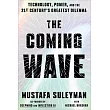A profound and lyrical reflection on the cyclical nature of life, what happens when we break that cycle, and how to repair it--told through the fate of phosphorus
"There would be no life without constant death." So begins Jack Lohmann’s remarkable debut, White Light, a mesmerizing swirl of ecology, geology, chemistry, history, agricultural science, investigative reporting, and the poetry of the natural world. Wherever life has roamed, its record is left in the sediment; over centuries, that dead matter is compacted into rock; and in that rock is phosphate--one phosphorus atom bonded to four oxygen atoms--life preserved in death, with all its surging force. In 1842, when the naturalist John Stevens Henslow, Darwin’s beloved botany professor, discovered the potential of that rock as a fertilizer, little did he know his countrymen would soon be grinding up the bones of dead soldiers and mummified Egyptian cats to exploit their phosphate content. Little did he know he’d spawn a global mining industry that would change our diets, our lifestyles, and the face of the planet.Lohmann guides us from Henslow’s Suffolk, where the phosphate fertilizer industry took root, to Bone Valley in Central Florida, where it has boomed alongside big ag--leaving wreckage like the Piney Point disaster in its wake--to far-flung Nauru, an island stripped of its life force by the ravenous young industry. We sift through the earth’s geological layers and eras, speak in depth with experts and locals, and explore our past relationship with sustainable farming--including in seventeenth-century Japan, when one could pay rent with their excrement--before we started wasting just as much phosphate as we mine. Sui generis, filled with passion and rigorous reporting, White Light invites us to renew our broken relationship not just with the earth but with our own death--and the life it brings after us.



 天天爆殺
天天爆殺  今日66折
今日66折 
























 博客來
博客來 博客來
博客來 博客來
博客來 博客來
博客來 博客來
博客來